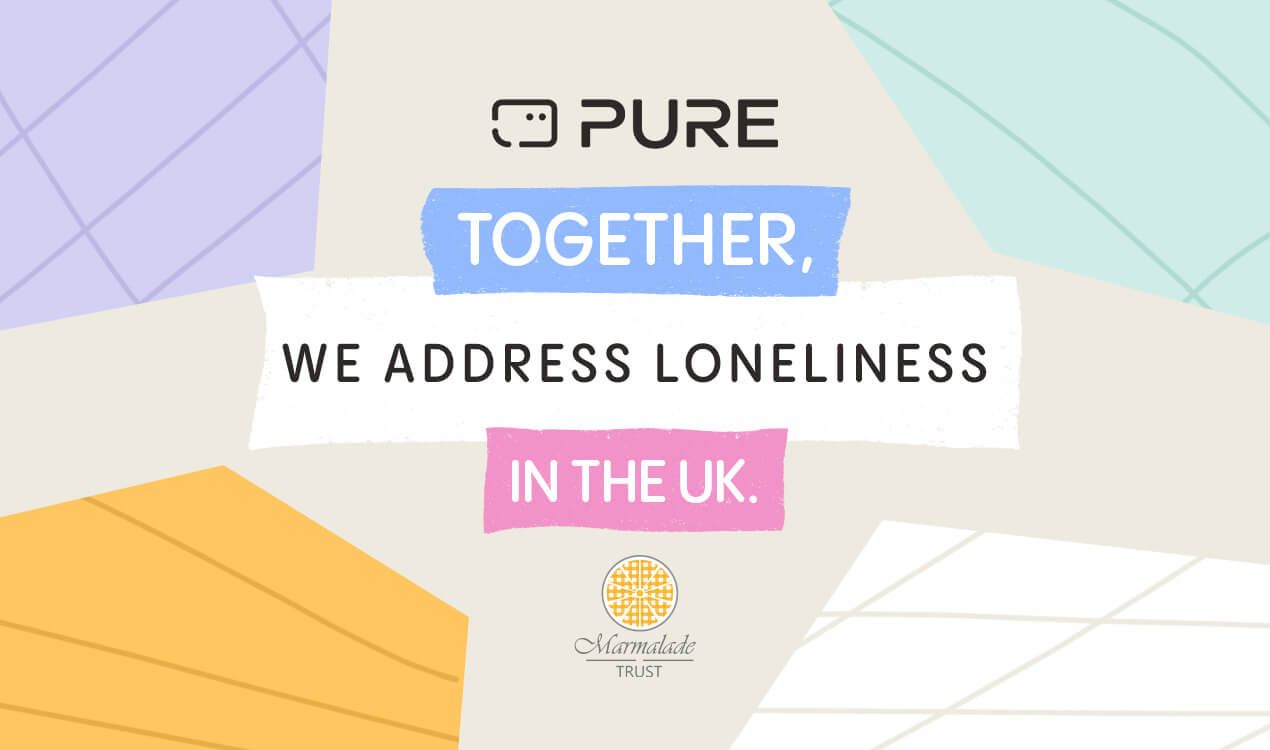More Than Half of Brits Feel Lonely: Could Radio Be the “Secret Best Friend”?
Loneliness is often described as the silent epidemic of our time. According to a recent study we commissioned this spring, in partnership with The Marmalade Trust, over half of UK adults feel lonely at least once a month. Despite this, nearly a third (28%) say they would never tell anyone how isolated they feel. With Loneliness Awareness Week 2025 approaching, this research sheds new light on how audio companionship, especially through radio, can play a vital role in supporting mental wellbeing.
Dr Lalitaa, Behaviouralist Psychologist and Expert in emotional wellbeing, commented:
“Loneliness remains a taboo subject, often shrouded in shame and stigma. But human connection is a basic psychological need – one that’s increasingly difficult to fulfil in today’s fast-paced, digital world. It’s encouraging to see initiatives like this that provide simple, tangible comfort and help people feel part of something again.”
Shame and Silence Around Loneliness
The study of 2,000 adults found that while 79% acknowledge loneliness is common, it remains a deeply stigmatised feeling. Many respondents cited concerns like:
- Not wanting to burden others (37%)
- Belief that no one would understand (21%)
- Fear of appearing vulnerable (21%)
These feelings seem rooted in weak or absent support networks—24% said theirs was lacking, and 13% admitted to having no support network at all.
Tara Fisher, COO from the Marmalade Trust, a UK-based charity dedicated to addressing loneliness, knows:
“Loneliness is a natural human emotion that we are all likely to experience in our lifetime. But there is still a stigma around loneliness, which means a significant portion of the population are reluctant to speak about these feelings to others -either because they don’t feel they have anyone to talk to or are worried about doing so.”
Young People Report the Highest Levels of Loneliness
Surprisingly, it’s not the older generations who feels the loneliest. Gen Z (born 1996–2011) are more affected than any other age group:
- 33% feel lonely a few times a week
- 11% experience loneliness every single day
This contrasts with only 6% of the general population who feel daily loneliness. Gen Z also expressed the highest levels of social anxiety, with 25% fearing judgment and 21% afraid of being dismissed.
Women and Londoners Among the Most Affected
Women reported higher loneliness rates than men: only 16% of women say they never feel lonely, compared to 26% of men. Regionally, Londoners stood out, with 33% feeling lonely several times a week or more often.
The emotional toll of loneliness is intensified by life changes, including:
- Shifts in personal relationships (23%)
- Financial stress (22%)
- Lower self-esteem (20%)
It’s perhaps no wonder that people are increasingly turning to audio as a source of comfort.
Radio as a Remedy: Connection Through Sound
When feeling alone, many seek distraction, and audio plays a key role:
- 52% listen to the radio more when at home alone
- 38% use it for background noise
- 20% say it gives them a sense of company
- 19% say it makes the house feel less empty
Most notably, 16% said radio helps them feel less lonely. For these listeners, it’s more than just entertainment—it’s an emotional lifeline. Hearing other people’s voices (15%) and feeling part of a conversation (13%) contributes to a sense of connectedness.
Among the most comforting formats:
- Pop stations (30%)
- Oldies stations (24%)
- Talk radio (21%)
Often mentioned by name were stations like BBC 4, Premier Christian Radio, Classic FM, Golden Oldies, Boom Radio and Radio Caroline. These preferences underline how radio can cater to different emotional needs, from nostalgia to lively discourse.
Pure’s Partnership with the Marmalade Trust
To address the stigma of loneliness and make meaningful change, Pure has partnered with the Marmalade Trust, an award-winning UK-based charity, dedicated to raising awareness of loneliness and empowering people to make connections.
In support of Loneliness Awareness Week (June 9–16, 2025), Pure will:
- Donate 150 radios to support individuals in need of company through sound
- Contribute £5 for every Pure radio sold (between June 9 – July 9, 2025) through John Lewis stores and Pure’s UK web shop.
“It’s great to see that everyday listening can bring a lot of comfort to people,” says Hubert Eiter, Chief Marketing Officer at Pure. “Our mission is to make accessing audio content as easy as possible, and we love the fact that radio is able to provide some company for those who feel lonely from time to time.”
Why Radio Matters in the Mental Wellbeing Conversation
While we often think of digital connection in terms of social media, this study shows that radio remains a powerful tool for emotional support. In a world where loneliness is growing, but rarely spoken about, simply hearing another voice—be it through music, talk shows, or news—can bring a comforting sense of presence.
Loneliness can feel overwhelming, but even something as simple as turning on the radio can help fill the silence with comfort and companionship.








